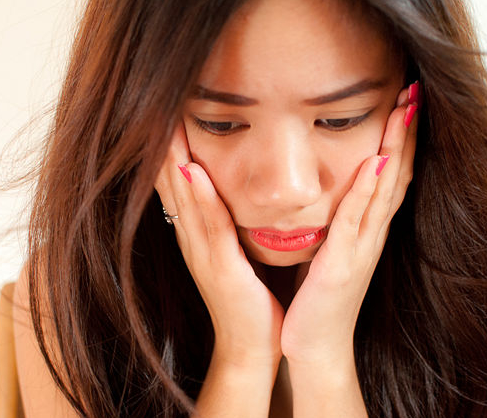Anxiety. We’ve certainly heard about it, but do we really know what it is?
 Anxiety is an umbrella term for several disorders that cause a person nervousness, fear, worry, and a feeling of impending doom. Anxiety disorders affect the person in how they act, feel, and can often appear with physical symptoms. Anxiety is normal to have when a person is facing a challenging event, like a test at school. When anxiety becomes a problem is when it doesn’t let the person function and sleep, thus affect their day-to-day lives.
Anxiety is an umbrella term for several disorders that cause a person nervousness, fear, worry, and a feeling of impending doom. Anxiety disorders affect the person in how they act, feel, and can often appear with physical symptoms. Anxiety is normal to have when a person is facing a challenging event, like a test at school. When anxiety becomes a problem is when it doesn’t let the person function and sleep, thus affect their day-to-day lives.
Some of the common types of anxiety disorders are Generalized Anxiety Disorder (GAD), Panic Disorder, Phobia, Social Anxiety Disorder, and Post Traumatic Stress Disorder (PTSD). Although all of these are good to know about I want to focus your attention on one aspect that can commonly be associated with many of these disorders- panic attacks.
What are panic attacks?
Panic attacks are sudden and intense feelings of anxiety. When I say I intense, I mean intense. There’s a reason why they’re called ‘attacks’ after all.

Here are some of the symptoms of a panic attack:
- Hyperventilation / feeling out of breath
- Feeling chest constrict /discomfort
- Trembling or shaking
- Feeling like your throat is closing in
- Feeling detached from the world around you. Sometimes like you’re in slow mo.
- Sweating
- Upset stomach or nausea (feeling like you need to up chuck on a wood chuck)
- Light-headed / dizzy
- Numbness or tingling sensations
- Hot or cold flashes
- Feeling like you’re about to die or go crazy

It’s hard to breath. Teen Wolf|MTV. IMG Credit torple|tumblr. - You basically feel out of control

If you’re looking at this and thinking ‘yep, that’s what they feel like’ then I don’t need to remind you how awful they are. If you’re looking at this and thinking ‘yikes, that does not sound fun’ all I can say is that you’re absolutely right. The attacks themselves last for a short period of time (around eight minutes, give or take). Panic attacks tend to follow the pattern: pre-attack (you feel like something bad’s going to happen), attack (terror, terror everywhere), and post-attack (drained of energy and slowly calming down).
How to deal with panic attacks
If you’ve been hit by a panic attack before or have been around someone who’s had one, you know how scary it can get. If you ever find yourself in the situation and come to recognize the symptoms here’s what you can do (also pretty helpful if you know this and can then help someone out).
If you feel an attack coming your way doing some simple breathing and muscle relaxation techniques can make you feel more in control.
- Take slow breaths in through your nose while counting to five
- When you’ve counted to five slowly let out your breath at the same pace you breathed in
- Find a place to sit or lie down so you can relax
- Continue deep slow breathing
- Curl your toes and feet really tight for five seconds, then release
- Squeeze your calf muscles for five seconds, then release
- Continue isolating all your body muscles in sections up your body
- When you reach your face you should feel much more relaxed
It’s also been recommended that you try some light activities like walking, yoga, and stretching. If you focus on your side vision (peripheral) it can calm you down because it starts up your parasympathetic nervous system.
Why they happen
Panic attacks can be isolated events and not have a noticeable cause leaving the person without any further problems. Sometimes they are a result of a phobia like arachnophobia (fear of spiders). Having a panic attack doesn’t automatically mean you have a disorder. Some people who have had panic attacks go on to develop a panic disorder but certainly not all. People who have this disorder have frequent attacks, fear these attacks (sometimes triggering more), and adjust their life around them.
Want to learn more about anxiety disorders?
Conclusion
Living with anxiety can be hard and panic attacks can be scary but it is important to know you’re not alone. Taking care of yourself includes mentally too, not just physically.
Sources
Smith, Melinda, M.A., and Segal, Jeanne, Ph.D. “Panic Attacks and Panic Disorder” helpguide. Accessed November 11, 2014.
Bressert, Steve, PH.D.. “Tips to Cope with a Panic Attack” psychcentral. Accessed November 11, 2014.
Crosta, Peter, PH.D.. “All about Anxiety” medicalnewstoday. Accessed November 11, 2014.
Calm Clinic. “How Long Do Panic Attacks Last?” calmclinic. Accessed November 11, 2014.

